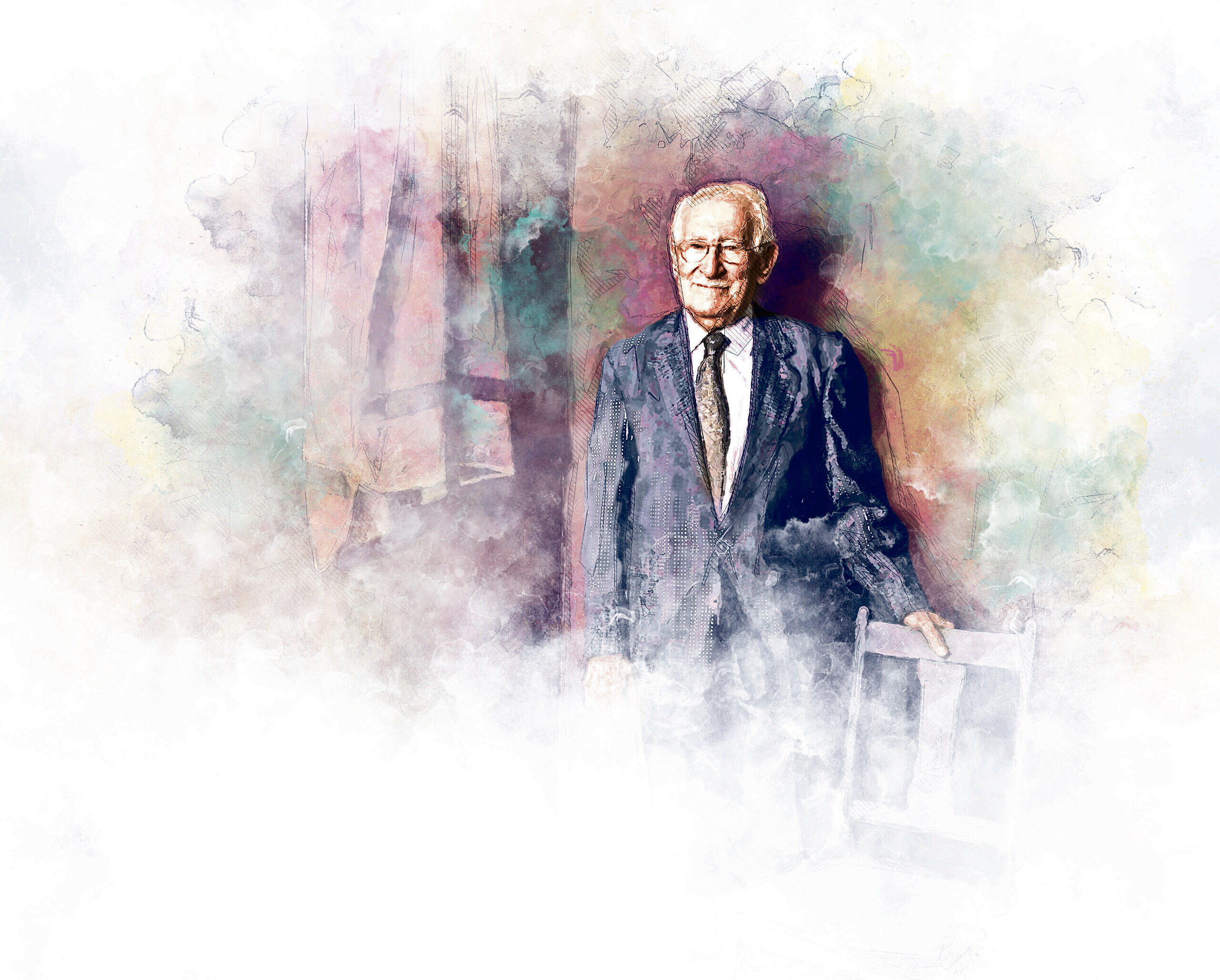When reading a book about the Holocaust, the last thing you expect to encounter is a story about a pineapple. Yet that’s what you get by page four of The Happiest Boy of Earth, Eddie Jaku’s powerful story written as a children’s book, so that his youngest loves – his great-grandchildren – could read, understand and engage with their family’s story.
The beautifully illustrated picture book was born from Eddie’s award-winning memoir, The Happiest Man on Earth, which was published just after he turned 100.
As Eddie explained to The AJN in 2020, putting pen to paper was never on the cards for him. But, the publisher, Pan Macmillan, had seen his TED Talk, for which he received a standing ovation from over 6000 people, and was insistent that it would be a brilliant, and important, story to share. While he and his family originally resisted, the publisher moved mountains to ensure Eddie’s story was printed. All the publisher wanted, really, was for Eddie to share his blueprint for a life filled with happiness, despite the atrocities he had faced as a child and young man.
Pan Macmillan was obviously onto a good thing, because The Happiest Man on Earth has gone on to reach millions of people around the world and has been published in more than 30 languages. The family, once again, put their faith in the publisher when Pan Macmillan said it wanted to turn Eddie’s story into a book for children.
While Eddie didn’t have the opportunity to hold the finished book in his hands, the Jaku family said that he was thrilled to know that his book would be made into a format suitable for younger children, especially considering the wonderful relationship he shared with his grandchildren and his great-grandchildren.
Speaking to The AJN, Eddie’s son Michael explained that the grandchildren and great-grandchildren would see Eddie often. While obviously COVID-19 threw a spanner in the works, Michael explained that Eddie and Flore would often be surrounded by the extended family, especially sharing Shabbat dinners together.
Known as Pepe to the younger generations, The Happiest Boy on Earth is framed as a conversation between Eddie and his great-grandchildren, who range from 16 years down to seven. Michael explained that while the older great-grandchildren have read The Happiest Man on Earth, it proved a tricky task for the younger ones.
In the book though, Eddie talks to his great-grandchildren directly, sharing his story in age-appropriate language and beautiful illustrations, including the innocent tale of just wanting a pineapple for his birthday. Eddie shares that he lived so close to the zoo, he would visit the animals often, and written directly in the book is the lovable question from one of the children: “Did you hear them roaring at night”?
Eddie was such a presence in the Sydney community that it’s easy to almost hear him chuckle alongside the question, as he continues to talk about his precious dachshund Lulu, before explaining how everything suddenly changed.
Talking about his memoir, Eddie told The AJN that he “wanted this book to not only be about my life, but to be about how you can teach your children how to be in the future”.
In The Happiest Boy on Earth, Eddie shares, once again, how his family would help those around them; his mother would bake more challah loaves than his family needed so they could share them with other families.
And just like his memoir, the children’s book is dotted with sage words of wisdom from grandfather to his grandchildren.
He says, for example, “Never be suspicious of people just because they seem different from you, my young ones. This is how wars begin,” and when ‘asked’ by the children if he was scared when his father sent him to boarding school to try to save his life, the answer is honest: “I was terrified! I was scared and homesick and lonely, but I had no choice.”
In a heartbreaking reality, survivors of the Holocaust are dwindling. Soon, we won’t have any left and it will be up to the rest of us to share their stories, to help ensure that atrocities like the Shoah never happen again.
For parents, this can be a daunting task. Even looking around the world at the moment, parents are having some tricky conversations, particularly given the nature of the news and social media. Having books like The Happiest Boy on Earth perhaps makes that task a bit easier – helping to explain the Holocaust in a way young children can understand, with simple, yet strong, language and beautiful imagery. It’s something that was important to Eddie. As the family wrote in a message, “Eddie would have loved it!”
Now, thanks to Eddie and the whole Jaku family, the next generation, and the ones that follow, will be able to hear directly from Eddie, even after his passing, how he became The Happiest Man on Earth.
The Happiest Boy on Earth is published by Pan Macmillan, $26.99 (hardcover rrp).


comments